About Timbaktu
The Timbaktu Collective is a pioneering grassroots nonprofit organization that is transforming a drought-prone region in Andhra Pradesh.
Promotes organic agriculture, natural regeneration, community-based institutions, alternative banking, rural entrepreneurship, and the rights of women, children, and persons with disabilities
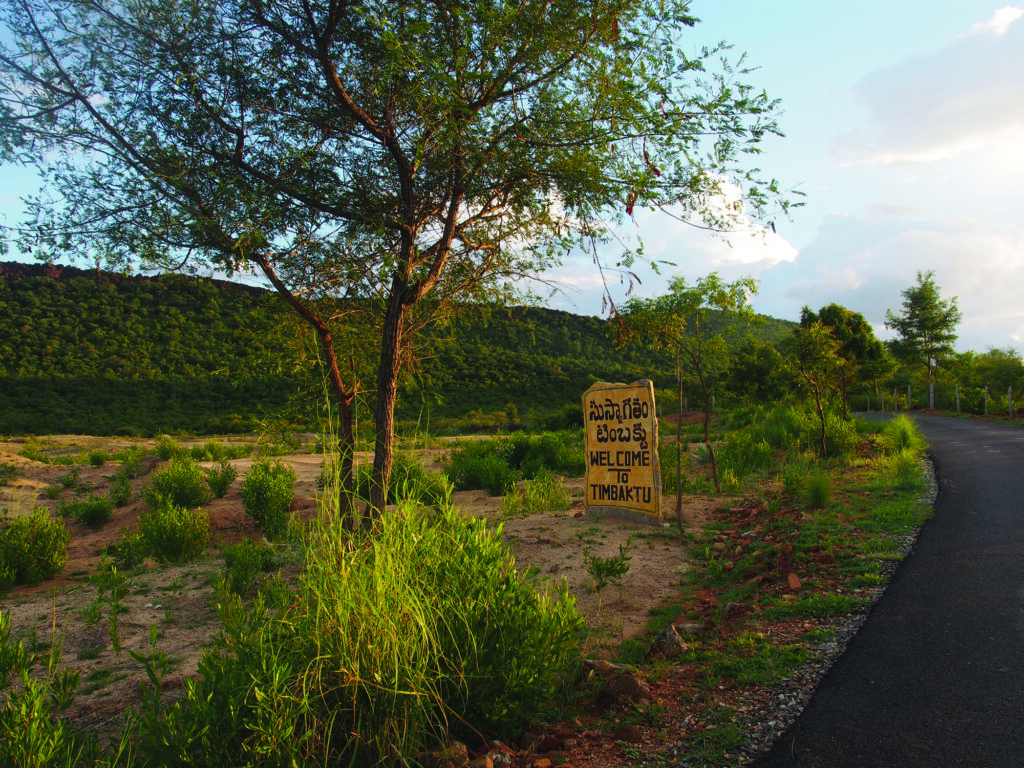
Our Vision
Rural communities live in dignity and peace while nurturing and celebrating life.
Our Mission
Enable marginalized rural people (landless labourers, artisans and small and marginal farmers, particularly women, children, youth, persons with disabilities, dalits and minorities) to collectivize their strengths, realize their rights, secure sustainable livelihoods, gain social & gender equity and take charge of their lives while reclaiming their cultural and ecological heritage.
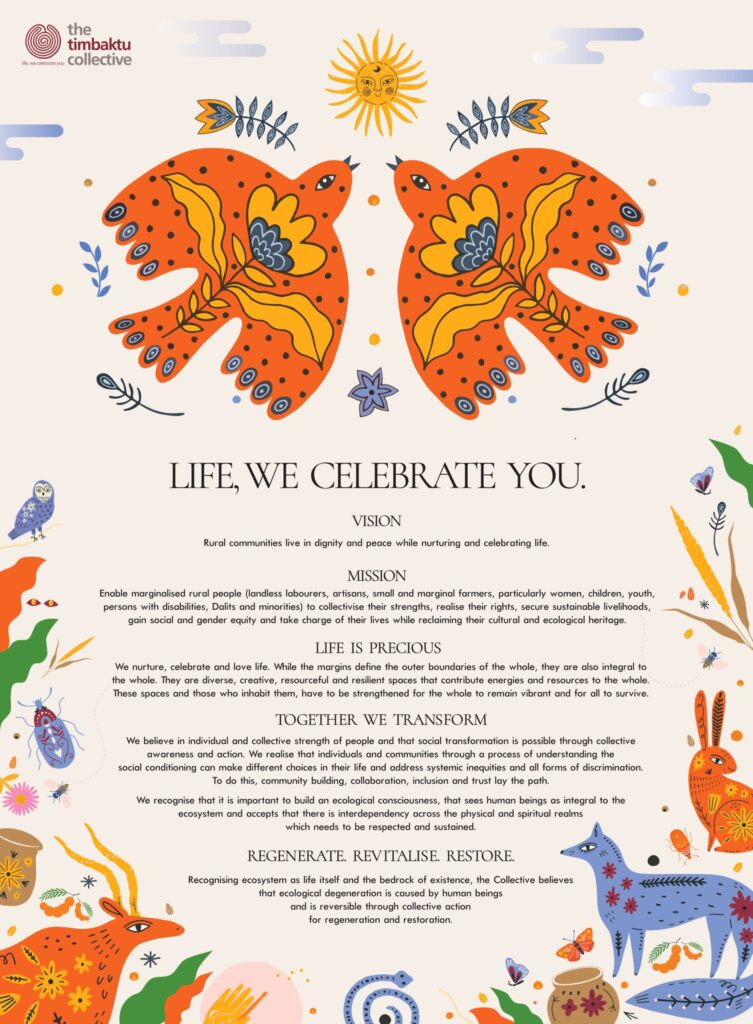
Our story
The Timbaktu Collective is often compared to a Banyan Tree, like a forest itself, housing so many insects, birds and animals, having multiple roots.
Its origin is also as complex. It needed a woman from Kerala and a man from Bengal to come together in Anantapuramu District of Andhra Pradesh. The man, known as Bablu aka Choitresh Kumar Ganguly, arrived on the 1st of April 1978 and stayed on. The woman, Mary Abraham Vattamattam, arrived on the 15th of May, 1978, stayed a few days at the Rural development Trust (RDT) and then went on to work amongst the tribal people of Srikakulam, in North Andhra Pradesh.
Bablu and Mary actually met only in 1981, in a meeting in Penukonda. It took another five years for Mary to return to Anantapuramu district and continue her journey, with Bablu.
Meanwhile, Bablu had been working with a Voluntary organisation called Young India Project, started by Narinder Bedi and wife Sonja Bedi. They were mobilising and unionising agricultural labourers and marginal peasants across the state. Mary joined Young India Project in 1986 and soon became one of the leaders in the organisation.
In 1990, Mary and Bablu decided to buy a 32 acres piece of land nearby, in C.K. Palli village, along with a close friend and fellow traveller, John D’Souza of Centre for Education and Documentation, (CED, Bombay) fame. This piece of land, named Timbaktu, was ecologically a miniature replica of Anantapuramu district.
From Timbaktu, meaning “the Last Horizon” or “the nowhere – nowhere land” or “Sarihaddu Rekha ” in Telugu, sprung the organisation known as the Timbaktu Collective.
Mary and Bablu had arrived with their three children at the destination that life had guided them towards, their “Karma Bhoomi”. It is here that they settled down and it is here that the Timbaktu Collective would sprout and grow into an organisation that now partners with about 40,000 families from 324 villages across 14 mandals of, what is now called, Sri Satya Sai District, part of the erstwhile Anantapuramu District of Andhra Pradesh.
A small group of friends had come forward to be on the general body and managing committee of the Collective. When the Collective started there was no blueprint for the road ahead. Like Antonio Machado, the Spanish poet had said, “Wanderer, there is no path, the path is created as you walk …” they knew they would have to forge their own path.
It was more than clear to these activists, who had moved from agitational politics to the path of constructive dissent, that real politics was constructive work as suggested by Mahatma Gandhi. They had decided that they would work in a relatively small area and try to enable the rural marginalised people to live in dignity and peace, while nurturing and celebrating life. That they would follow the dictum laid down by Fritz Schumacher, the Economist “‘We must do what we think is right and not bother ourselves whether we succeed or not. For if we do not do what we think is right we shall be doing the wrong thing and so become part of the problem rather than part of the solution’.
On the eve of the journey, Bablu, Mary and John went through a training programme in Permaculture Design conducted by Robyn Francis, one of the early students of Bill Mollison. One great piece of advice that Bill Mollison gave was so radically different from what the trio had been doing and thinking that it took years to seep in – The greatest change we need to make is from consumption to production, even if on a small scale, in our own gardens. If only 10% of us do this, there is enough for everyone. Hence the futility of revolutionaries who have no gardens, who depend on the very system they attack, and who produce words and bullets, not food and shelter.”
All these people and more have had a profound impact on the work of the Collective and its leaders. As Bablu says – “….. I am optimistic, as I know that all that we have done, has been done in a sacred manner and in celebration. This, to me, is already an end in itself.”
Operational Strategy
The Collective implements the following programmes in partnership with more than 40,000 families across 347 villages in 14 mandals in drought-prone Ananthapuramu and Sri Sathya Sai Districts of Andhra Pradesh:

The Operational strategy is the formation of Cooperatives that are promoted by the Timbaktu Collective.
The total membership of Cooperatives/CBOs that are promoted by the Collective is over 47,000 and the total net worth of the Cooperatives is INR 76,00,14,558.27 approximately US$ 8.7 million.
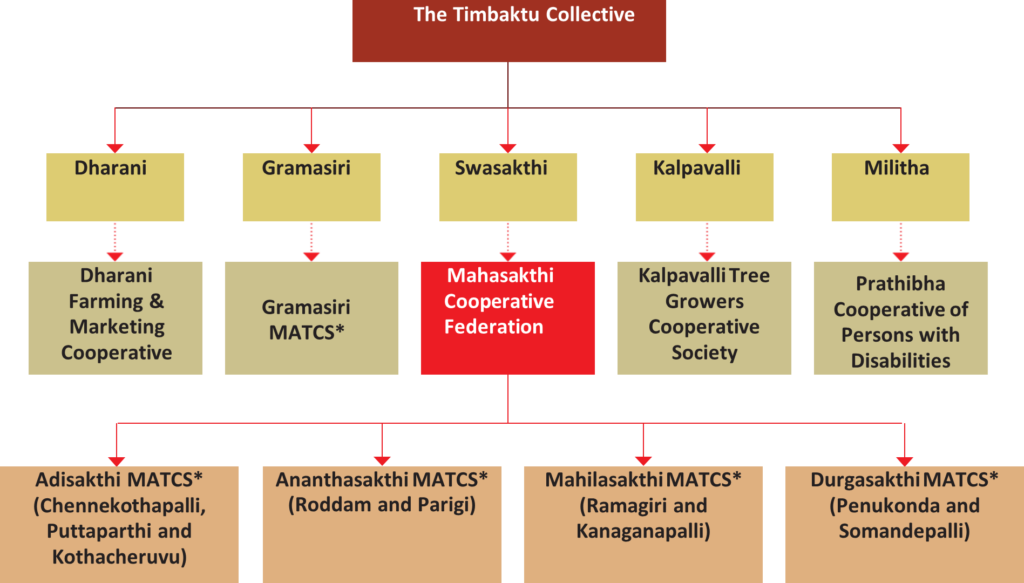
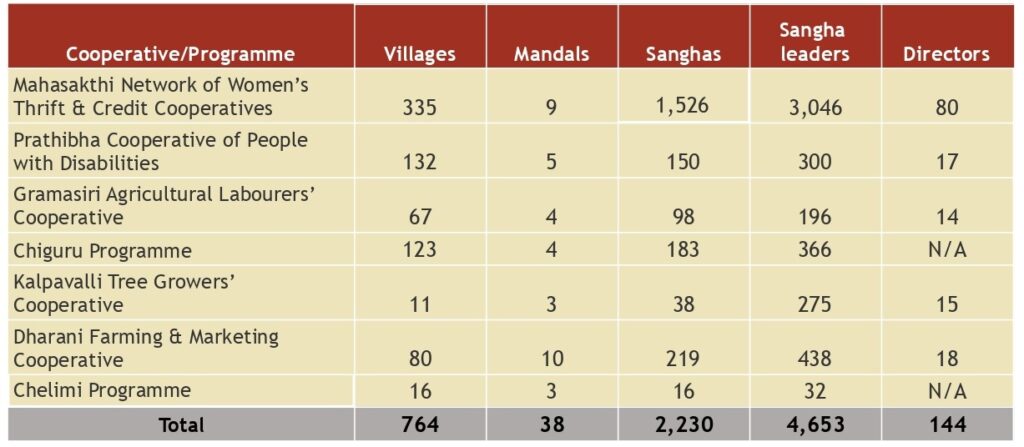
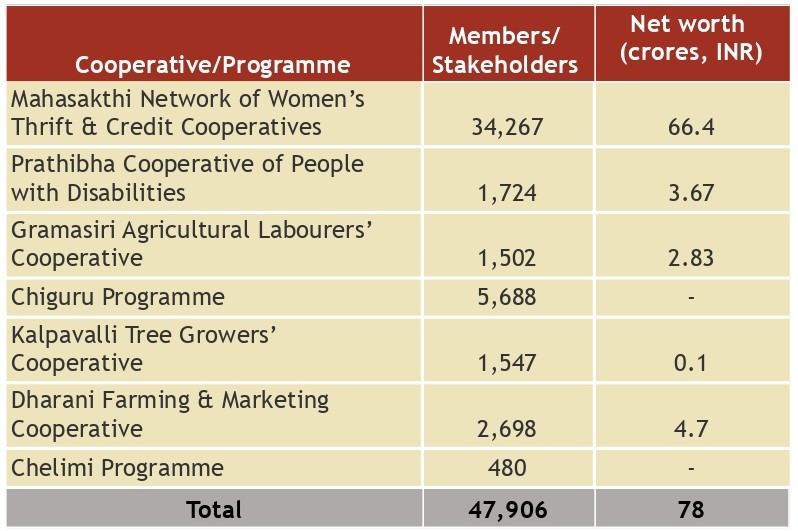
Note:
* All numbers are as of April 30th 2025
* The total number of members/stakeholders does not consider overlaps in membership, which is estimated to be 1,000 members.
* Exchange rate US$ 1= INR 85.65"
Managing Committee
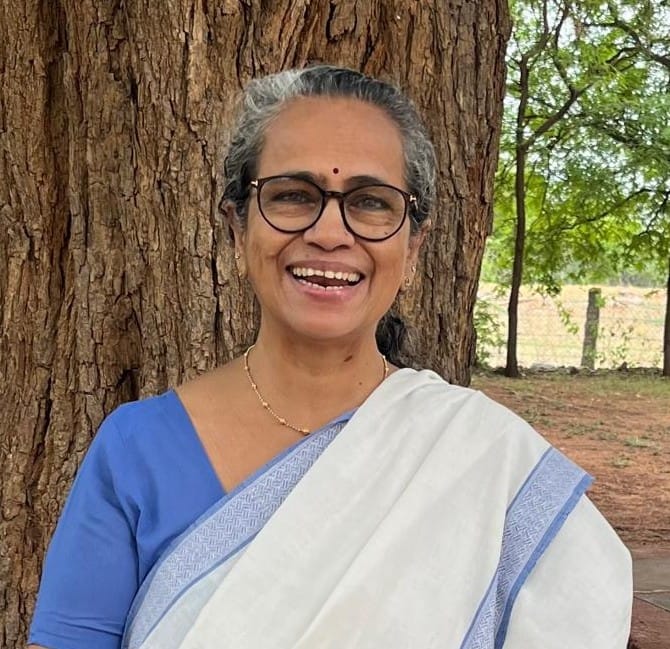
Mary Vattamattam
Secretary
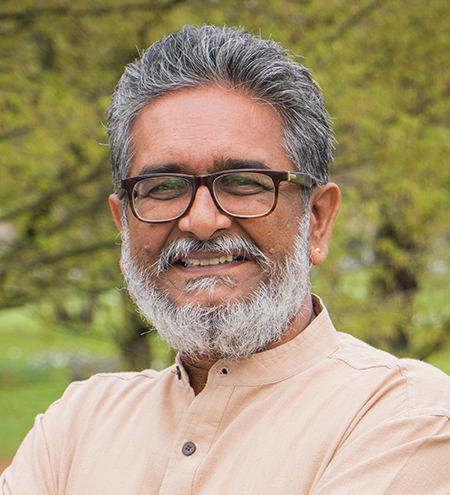
C.K. Ganguly
Chairperson
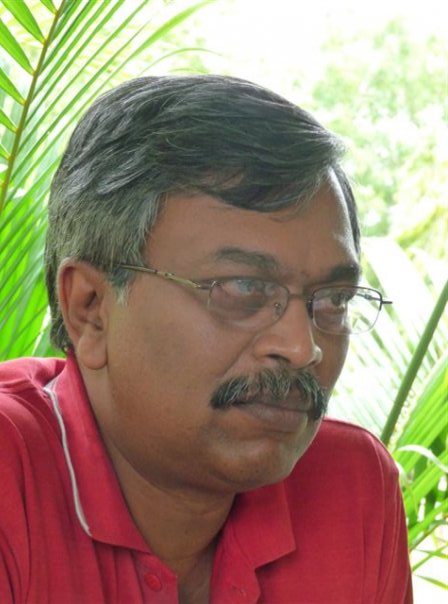
Pradeep Esteves
Treasurer
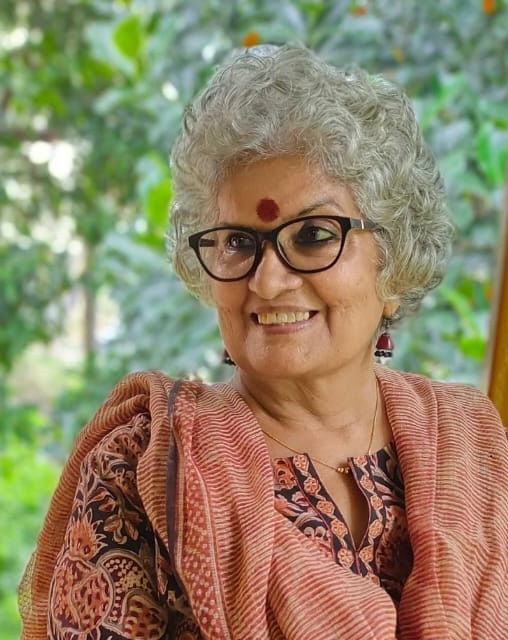
Mercy Kappen
Member
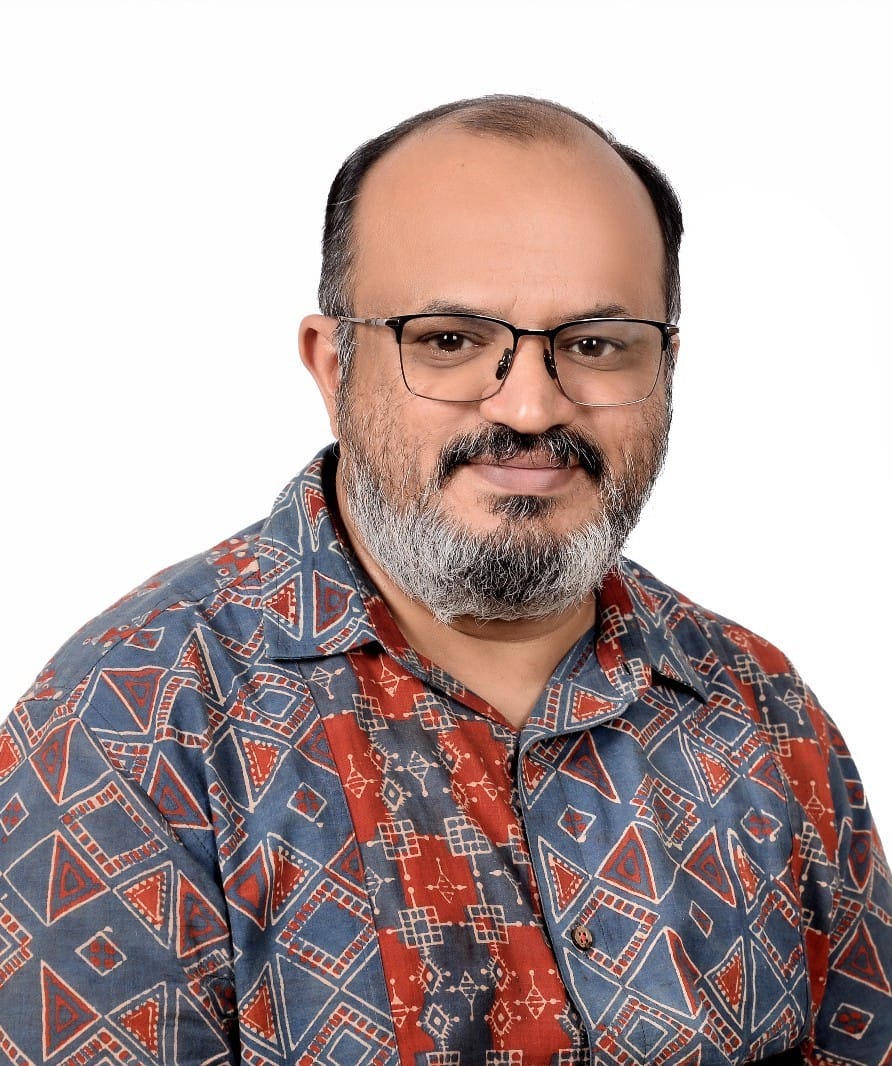
Haritha Sarma
Member
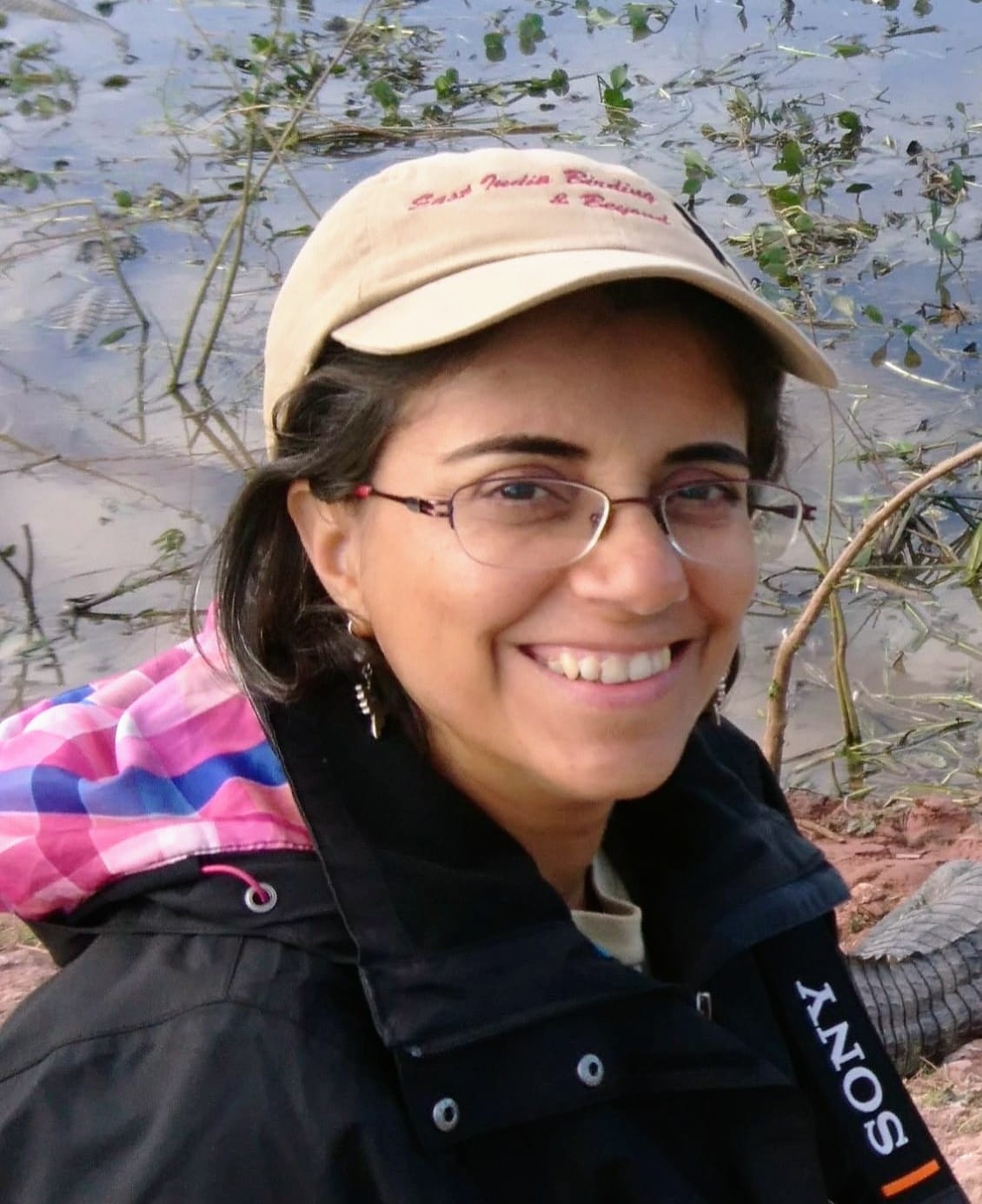
Garima Bhatia
Member
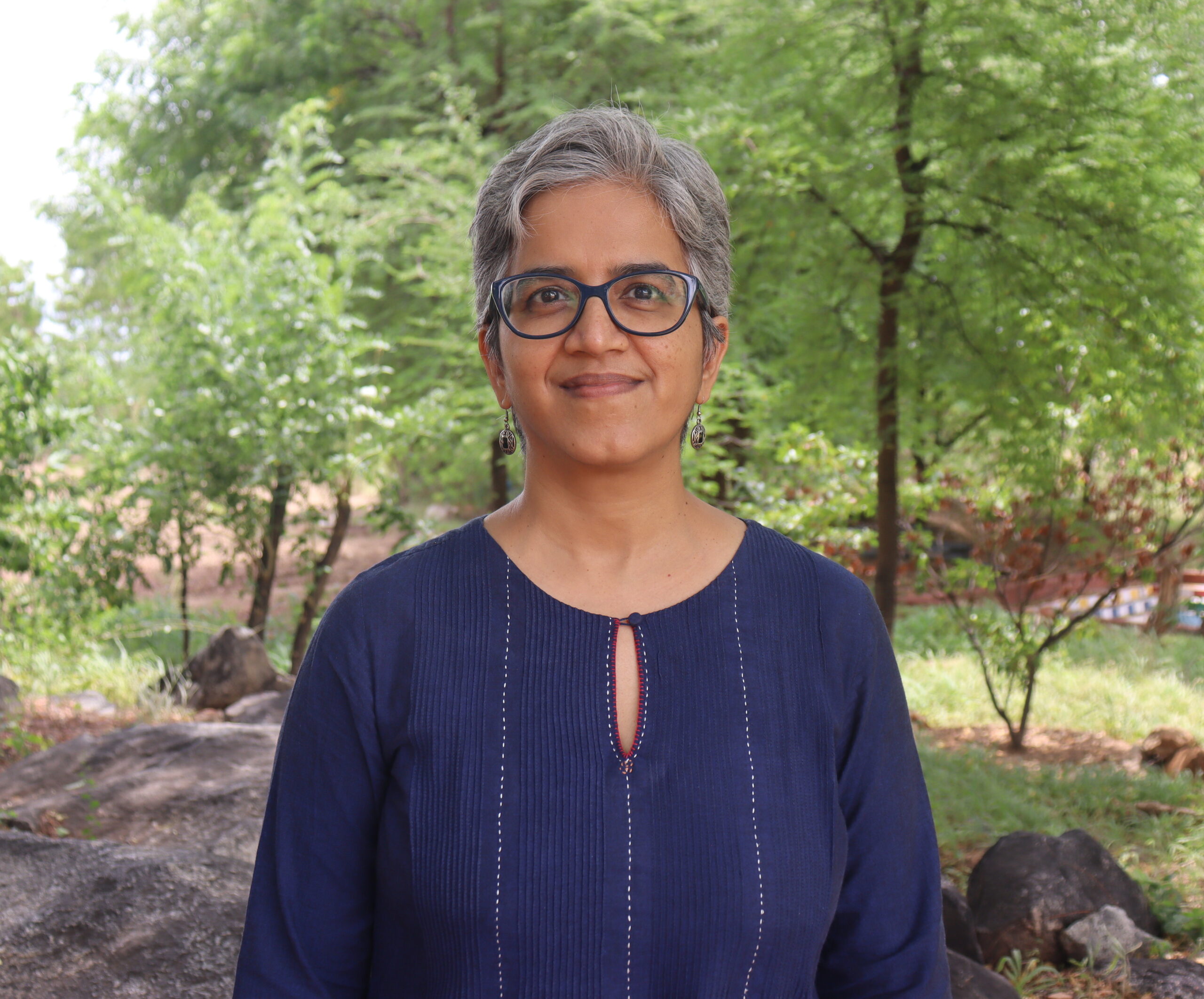
R.V. Jayapadma
Member
Steering Committee

C.K. Ganguly
Chairperson
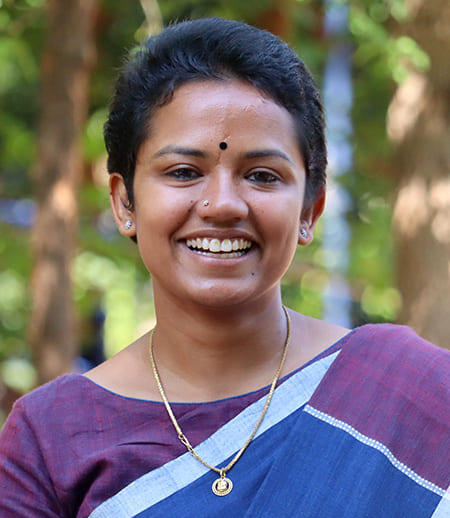
Sakamuri Sukanya
Executive Director
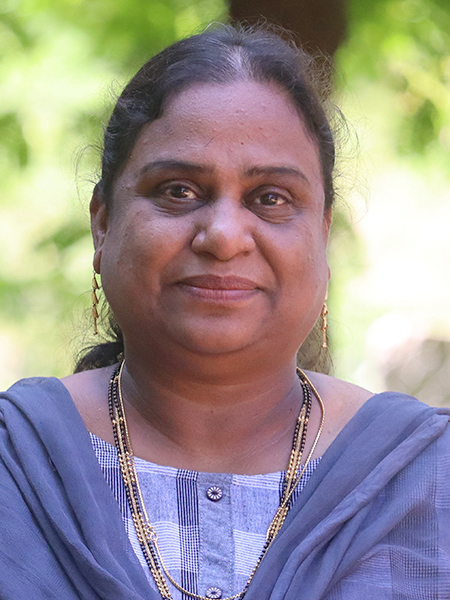
P.Zabeera Khanam
Finance Manager

M.Ramesh kumar
Programme Manager
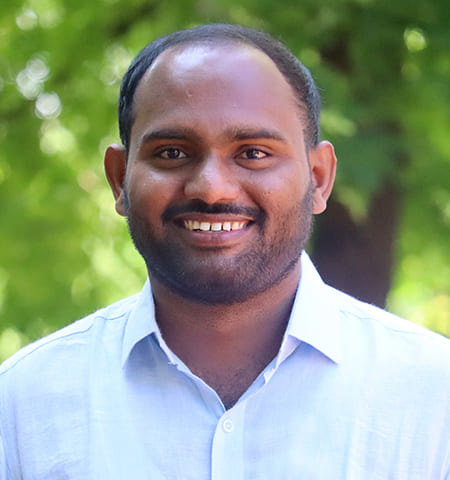
P.Srikanth
Programme Manager
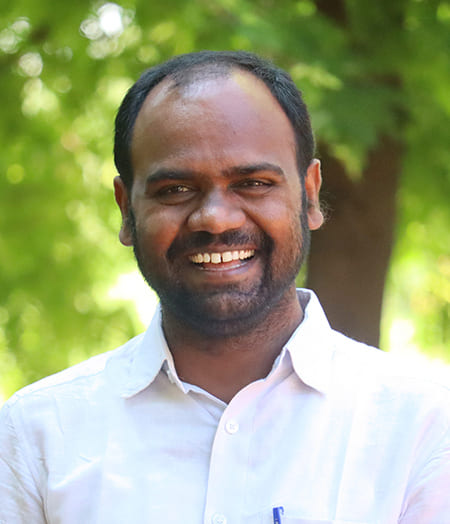
Gondi Mahesh
Programme Manager

Dr G Jayasree
Programme Manager
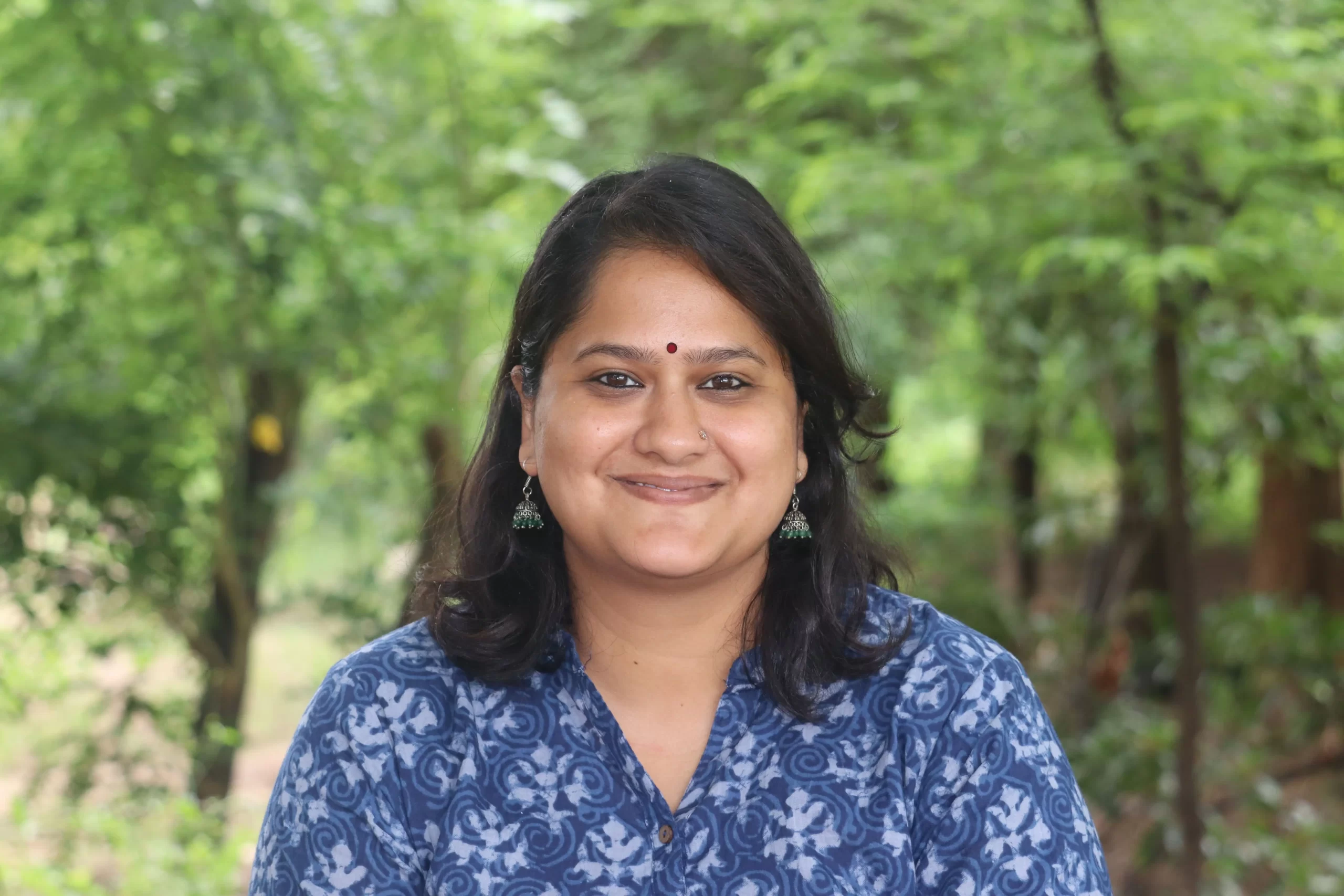
Duhita Ganguly
Admin Manager

Gowri S. Kumar
Programme Coordinator
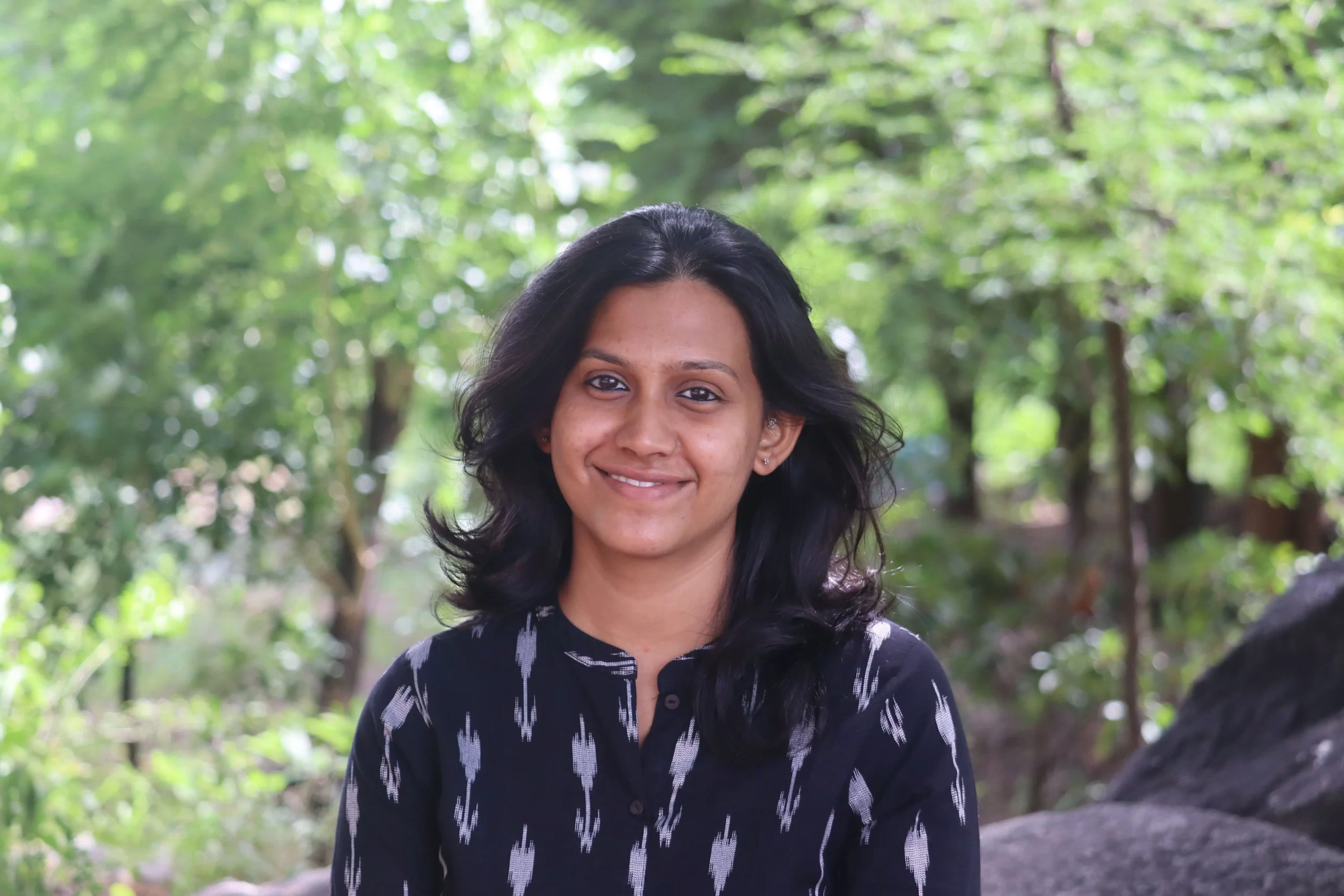
Vibha Satish
Project Manager
Core Group

Panchayati

Present Donors
We are grateful for the many people and institutions that have supported us over the past 32 years. A large part of our success is due to their trust and belief in our work. Some of our current institutional donors are:
- Asha for Education, USA/ Bengaluru;
- Brot für die Welt (BfdW), Berlin, Germany;
- Buckminster Fuller Institute, Stanford, California;
- GLS Future Foundation for Development, Germany;
- Global Green Grants, USA;
- Rapunzel One world Organic Foundation, Germany;
- Zukunft Indien eV, Germany;
- Vastenactie, the Netherlands;
- SPA Education Foundation, Mumbai;
- ION Foundation, Mumbai, CSR initiative of ION Exchange;
- KIA India Private Limited, Amavaripalli, CSR;
Compliances
- Registered on 14 November 1990, under the Societies Registration Act (1860).
- Exempted from Income Tax under Section 12A of the Income Tax Act. Donations to the Collective by Indian nationals are eligible for tax deduction, under Section 80G of the Income Tax Act.
- Registered with the Union Ministry of Home Affairs (MHA) to receive foreign funding per the provisions of the Foreign Contribution Regulation Act (2010). FCRA Registration Number is 094420621; renewed on 1 April 2022.
- Registered with the NGO Darpan platform of NITI Aayog. Registration Number: AP/2017/0116292.
